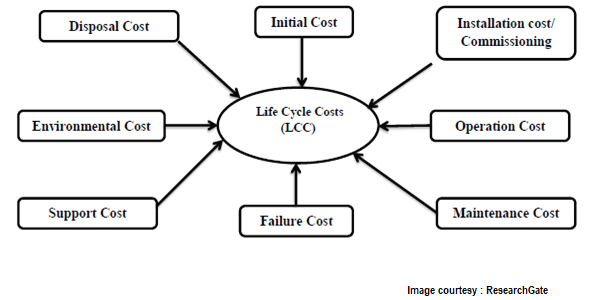Importance of Life Cycle Costs in Oil & Gas Industry

Life cycle cost (LCC) analysis is essential in the oil and gas sector for numerous reasons. Given the extended duration, substantial capital requirements, and volatile market dynamics associated with oil and gas ventures, LCC facilitates well-informed decision-making throughout a project's life. Some of the primary reasons for its importance include:
Investment decisions: LCC analysis helps determine a project's long-term financial viability by taking into account capital costs, operating costs, maintenance costs, and other pertinent factors. Making investment decisions and securing finance both require access to this information.
Budgeting and cost management: Understanding life cycle costs makes it easier to develop budgets for various project phases and put them into action. As a result, financial risks are decreased and resource allocation is enhanced.
Asset management: By determining the most economical methods for asset upkeep, replacement, and decommissioning, LCC helps to ensure effective asset management. This ensures that assets are used to their fullest potential throughout their lifespan.
Risk management: Life cycle cost analysis can identify potential risks and ambiguities connected to cost overruns, scheduling delays, or market volatility. Using this information can help you create risk mitigation measures and backup plans.
Environmental and social considerations: LCC analysis can take environmental preservation costs, regulatory compliance costs, and social responsibility costs into account. This makes it possible to make well-informed decisions that balance sustainability and profit.
Performance benchmarking: To identify the most affordable solutions, life cycle cost analysis offers comparisons between alternative projects, technology, or methodologies. This may lead to improved project performance overall, better technology choices, and more efficiency.
Making decisions: LCC provides a thorough awareness of the advantages and disadvantages of various options. Making educated decisions on design, building, operation, maintenance, and decommissioning activities requires the use of this knowledge.
